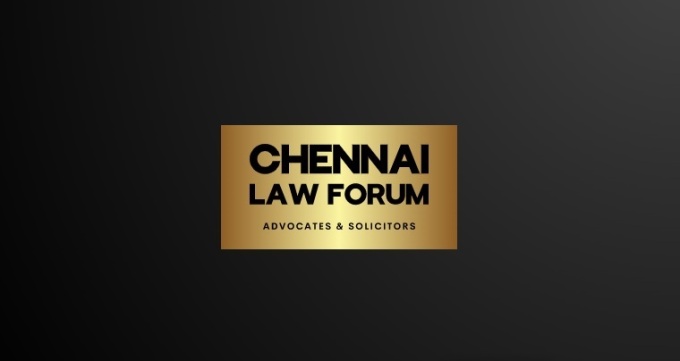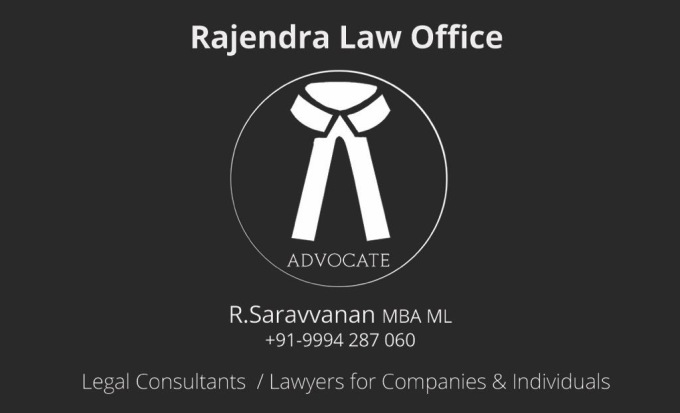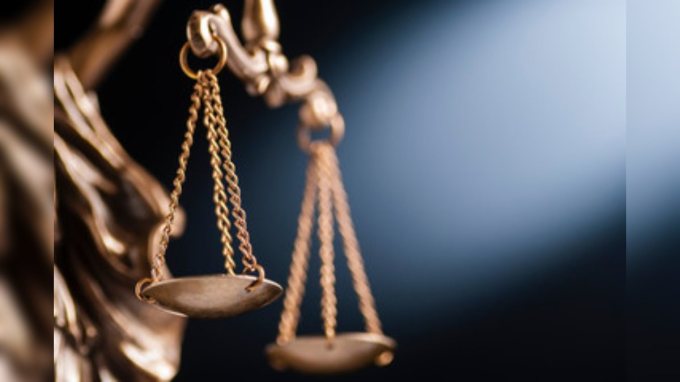Veena Tuli vs Ram Snehi on 25 March 2015 in the Punjab and Haryana High Court
Hon’ble Division Bench of this Court considered the matter in its entirety and observed that AN AGREEMENT TO SELL DOES NOT CONFER ANY RIGHT, TITLE OR INTEREST, EXCEPT OF CONFERRING A RIGHT TO SEEK ENFORCEMENT OF THE AGREEMENT, BY FILING A SUIT FOR SPECIFIC PERFORMANCE, UNDER THE SPECIFIC RELIEF ACT, 1963.
Subsequently, amendment was introduced to SECTION 49 OF THE INDIAN REGISTRATION ACT AND THE HON’BLE DIVISION BENCH CONSIDERED THE PROVISO TO SECTION 49 AS WELL AS PROVISION OF SECTION 53-A OF TRANSFER OF PROPERTY ACT, 1882 AND OBSERVED THAT THE SUIT FOR SPECIFIC PERFORMANCE BASED UPON AN UNREGISTERED AGREEMENT TO SELL ACCOMPANIED BY DELIVERY OF POSSESSION OR EXECUTED IN FAVOUR OF A PERSON, WHO IS ALREADY IN POSSESSION CANNOT, THEREFORE, BE SAID TO BE BARRED BY SECTION 17(1A) OF THE REGISTRATION ACT, 1908.
The Hon’ble Division Bench disagreed with the judgment in Gurbachan Singh Vs. Raghubir Singh’s case (supra) and affirmed the judgment in Mood Chand Mindhra Vs. Smt. Indu Bala, 2012(5) RCR(Civil) 646.
As such, the Court of first appeal had placed reliance upon Gurbachan Singh Vs. Raghubir Singh’s case (supra) and the said judgment has already been over ruled by Hon’ble Division Bench of this Court and as per law, THE AGREEMENT DATED 28.01.2005 DOES NOT REQUIRE COMPULSORY REGISTRATION FOR SEEKING SPECIFIC PERFORMANCE OF THE AGREEMENT in the case in hand and this question of law is answered accordingly in favour of the appellant.
___________
IN THE HIGH COURT OF PUNJAB & HARYANA, CHANDIGARH
RSA No.1814 of 2014(O&M)
Date of Decision: 25.03.2015
Veena Tuli ….. APPELLANT
VERSUS
Ram Snehi ….. RESPONDENT
PRESENT: –
Mr. Vikram Singh, Advocate for the appellant.
Mr. Y.S. Saini, Advocate for the respondent.
CORAM: HON’BLE MR. JUSTICE SHEKHER DHAWAN
1) Whether Reporters of the local papers may be allowed to see the judgment?
2) To be referred to the Reporters or not?
3) Whether the judgment should be reported in the Digest?
SHEKHER DHAWAN, J.
This Regular Second Appeal is directed against judgment and decree dated 11.02.2014 passed by the Court of Additional District Judge, Chandigarh whereby the judgment and decree dated 22.11.2010 passed by Additional Civil Judge (Sr. Divn.), Chandigarh
was reversed in Civil Suit No.1 i.e. Civil Suit No.30 of 2006, JYOTI titled as Smt. Veena Tuli Vs. Ram Snehi (Thekedar) and
the appeal filed against Civil Suit No.2 i.e. Civil Suit No.502 of 2008, titled as Ram Snehi Vs. Smt. Veena Tuli was dismissed.
For convenience sake, hereinafter, reference to the parties is being made as per their status in the Civil Suit.
The detailed facts are already recapitulated in the judgments of the courts below and are not required to be reproduced. In brief, the facts relevant for disposal of this second appeal are to the effect that two separate Civil Suits were filed by the parties. The first Civil Suit No.30 of 2006 titled as Smt. Veena Tuli Vs. Ram Snehi (Thekedar) was filed for specific performance of agreement of sale dated 28.01.2005 and for permanent injunction restraining the defendant from alienating the house bearing khasra No.73/55 in New Darshani Bagh, Mani Majra to any other person except the plaintiff and for restraining the defendant from interfering in the peaceful possession of plaintiff in two rooms set on first floor.
The second Civil Suit was filed by Ram Snehi against Smt. Veena Tuli vide Civil Suit No.502 of 2008 for seeking declaration to the effect that agreement of sale dated 28.01.2005 is wrong, null and void and has no validity in the eyes of law and consequently the earnest money paid by the defendant to the plaintiff stood forfeited in favour of the plaintiff and suit for mandatory injunction directing the defendant to hand over the possession of two rooms set on first floor of house bearing khasra No.73/55, New Darshani Bagh, Mani Majra.
However, the main point involved in both the Civil Suits is regarding validity of agreement of sale deed dated 28.01.2005. Smt. Veena Tuli plaintiff in Civil Suit No.1 has come with the plea that the said agreement was duly executed and she is entitled to seek specific performance of the said agreement whereas Ram Snehi has come up with the plea that the said agreement is not a valid agreement.
The Court of first instance settled the following issues and the parties were put to trial:
1. Whether the defendant has executed an agreement to sell dated 28.1.2005, as alleged? OPP
2. If the above issue is proved in affirmative, whether the plaintiff is entitled for specific performance of agreement to sell dated 28.1.2005, as alleged? OPP
3. Whether the plaintiff is having possession over the suit property as alleged? OPP
4. Whether the plaintiff is entitled to relief of permanent injunction restraining the defendant from alienating the suit property in any manner, as alleged? OPP
5. Whether the plaintiff is entitled for relief of permanent injunction restraining the defendant from interfering into his possession, as alleged? OPP
6. Whether the suit is not maintainable? OPD
7. Whether the suit is liable to be dismissed with special cost? OPD
8. Relief.”
On the basis of oral as well as documentary evidence available on file, the Court of first instance decided issues No.1 and 2 and 4 in favour of Smt. Veena Tuli plaintiff in Civil Suit No.1. Issue No.3 was partly decided in favour of plaintiff upto the extent of two rooms set only whereas issue No.5 was decided that the plaintiff was not entitled for injunction restraining the defendant from interfering in his possession. Issues No.6 and 7 of Civil Suit No.1 were not pressed before the Court of first instance.
However, following issues were framed in Civil Suit No.2, titled as Ram Snehi Vs. Veena Tuli:
1. Whether the plaintiff is entitled to the declaration and mandatory injunction as prayed for and grounds taken in the plaint? OPP
2. Whether the suit is not maintainable in the present form? OPD
3. Whether the plaintiff has no cause of action to file the present suit? OPD
4. Whether the plaintiff is estopped by his own act and conduct? OPD
5. Whether the plaintiff has not come to the court with clean hands? OPD
6. Whether the suit has not been properly valued for the purpose of court fee and jurisdiction? OPD
7.Relief.”
However, issue No.1 was decided against the plaintiff. Issues No.2 to 5 were decided in favour of the defendant whereas issue No.6 was decided in favour of the plaintiff and consequently in Civil Suit No.1, it was held that Smt. Veena Tuli was entitled for specific performance of agreement dated 28.01.2005 and Ram Snehi was directed to get the same executed within two months. Defendant Ram Snehi was also restrained from alienating the suit property to any other person except the plaintiff. At the same time, the Court of first instance decided that Civil Suit No.2 was without any merit and the same stood dismissed.
Being aggrieved of passing of said judgment and decree dated 22.11.2010, Ram Snehi preferred an appeal and the Court of first appeal recorded findings that the agreement was not registered, which is otherwise compulsorily registrable. Consequently, the appeal filed by Ram Snehi was accepted and the finding recorded by the Court of first instance on issue No.2 for specific performance was reversed. Specific findings were recorded that agreement to sell was duly executed but the same was not a valid document being unregistered document and, as such, the present Regular Second Appeal before this Court.
Initially, no substantial question of law was settled by this Court. However, Regular Second Appeal is maintainable only if there is any substantial question of law involved in the matter in controversy and the same can be looked into by this Court at any stage while deciding the matter. In the case in hand, the substantial question of law is as under:
“1.Whether the agreement for specific performance by way of sale of immovable property requires compulsory registration or not?”
At the time of arguments, Mr. Vikram Singh, learned counsel for the appellant took the plea that both the Courts below have recorded the finding that agreement dated 28.01.2015 was duly executed and the same has been proved on the file. Oral as well as documentary evidence is available on the file on this point. The Court of first instance recorded the finding that plaintiff Smt. Veena Tuli was entitled to seek specific performance of the sale. However, the Court of First appeal reversed the finding only on the point that the said agreement dated 28.01.2005 required compulsory registration as per law laid down by 2015.03.26 15:52 I attest to the accuracy and authenticity of this document High Court Chandigarh this Court in case Gurbachan Singh Vs. Raghubir Singh 2010(5) RCR(Civil) 737. However, the said judgment has already been over ruled by Hon’ble Division Bench of this Court in case Ram Kishan and another Vs. Bijender Mann @ Vijender Mann and others, 2013(2) CivCC 188 and, as such, the findings recorded by the Court of first appeal are liable to be reversed and the substantial question of law be answered in favour of the appellant.
While arguing on this point, learned counsel for the respondent fairly conceded that both the Courts below have already recorded findings of fact that agreement dated 28.01.2005 has been held to be proved in accordance with law by both the Courts below. However, the execution of the said agreement was denied by the respondent in the written statement and, as such, the findings recorded by the Court of first appeal do not call for any interference and the appeal is without any merit and the same be dismissed.
Having considered rival contentions raised by learned counsel for both the parties, this Court is of the considered view that there is no dispute on the facts that real dispute between the parties in both the Civil Suits was regarding validity of agreement to sell dated 28.01.2015 and both the Courts below have recorded concurrent findings based on facts and evidence available on the file that the said agreement was duly proved on the file. The said findings do not call for any interference. The only legal question involved in the case is whether the said agreement required compulsory registration before seeking specific performance of the sale.
The Court of first appeal had placed reliance upon judgment of this Court in case of Gurbachan Singh Vs. Raghubir Singh’s case (supra). The said judgment was considered by Hon’ble the Division Bench of this Court on a reference as there was conflict between two Single Bench judgments titled as Gurbachan Singh Vs. Raghubir Singh, 2010(5) RCR(Civil) 737 and Birham Pal Vs. Niranjan Singh, 2011(2) Law Herald (Punjab and Haryana) 1136.
Hon’ble Division Bench of this Court considered the matter in its entirety and observed that an agreement to sell does not confer any right, title or interest, except of conferring a right to seek enforcement of the agreement, by filing a suit for specific performance, under the Specific Relief Act, 1963. Subsequently, amendment was introduced to Section 49 of the Indian Registration Act and the Hon’ble Division Bench considered the proviso to Section 49 as well as provision of Section 53-A of Transfer of Property Act, 1882 and observed that the suit for specific performance based upon an unregistered agreement to sell accompanied by delivery of possession or executed in favour of a person, who is already in possession cannot, therefore, be said to be barred by Section 17(1A) of the Registration Act, 1908. The Hon’ble Division Bench dis-agreed with the judgment in Gurbachan Singh Vs. Raghubir Singh’s case (supra) and affirmed the judgment in Mood Chand Mindhra Vs. Smt. Indu Bala, 2012(5) RCR(Civil) 646.
As such, the Court of first appeal had placed reliance upon Gurbachan Singh Vs. Raghubir Singh’s case (supra) and the said judgment has already been over ruled by Hon’ble Division Bench of this Court and as per law, the agreement dated 28.01.2005 does not require compulsory registration for seeking specific performance of the agreement in the case in hand and this question of law is answered accordingly in favour of the appellant.
In view of the above, the present appeal is accepted and judgment and decree dated 11.02.2014 passed by the Additional District Judge, Chandigarh stands set aside whereas judgment and decree dated 22.11.2010 passed by the Court of first instance i.e. Court of Additional Civil Judge (Sr. Divn.), Chandigarh stands restored and suit filed by plaintiff Smt. Veena Tuli in Civil Suit No.1 stands decreed and consequently, the suit filed by Ram Snehi in Civil Suit No.2 stands dismissed.
(SHEKHER DHAWAN) JUDGE
March 25, 2015
http://www.lawyerchennai.com





